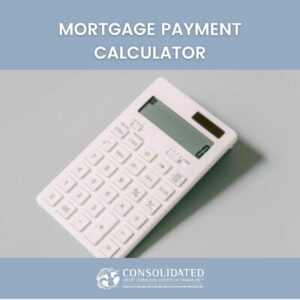When buying a home and shopping for a mortgage, the natural thing is to focus solely on finding the absolute lowest interest rate. But there are other things to look for in a mortgage besides the rate. The mortgage loan with the lowest rate may be the best mortgage, but that’s often not the case. There are other things that matter besides just mortgage rates.
Below are some items to look for in a mortgage besides just the rate.
Prepayment Privileges
Is paying off your mortgage early a goal of yours? You could take an open mortgage, which lets you prepay as much as you want without penalty. But the downside to open mortgages is that they almost always come with higher mortgages rates. There has to be a better way and thankfully there is – prepayment privileges.
Most closed term (the standard type of mortgage most Canadians sign up for) come with prepayment privileges. Prepayment privileges are extra payments you’re able to make during your mortgage term without incurring a penalty.
Some borrowers assume that prepayment privileges are the same regardless of the mortgage lender when that couldn’t be further from the truth.
The three types of mortgage prepayments are lump sum payments, increase your payment and double up your payment.
Lump sum payments let you make extra payments against the principal balance of your mortgage. When looking for lump sum payments, you’ll want a lender that offers a low minimum payment. A $100 minimum for a lump sum payment is good, although depending on the lender the minimum might be a lot higher.
Likewise, you want a lender that lets you make lump sum payments throughout the year, not just once a year. As an example, some lenders let you make lump sum payments once a year on your anniversary date, while others let you make them all throughout the year on any of your regular payment dates. The latter, not the former is better.
The ability to increase your payment is as it sounds. It involves being able to increase your regular mortgage payment. You’ll want to ask if a lender lets you decrease any increases later on in case you run into financial difficulties.
Some lenders also let you double up your mortgage payments. This is similar to increasing your payment, however, it’s not permanent. You can choose to pay double your mortgage payments once or many times a year.
The percentage that lenders let you prepay is different. For example, a lender with 10/10 prepayment privileges lets you make 10 percent lump sum payments and increase your regular monthly payments by 10 percent a year, while one with 20/20 prepayments lets you make 20 percent lump sum payments and increase your regular mortgage payments by 20 percent a year.
If you have a $500,000 mortgage, with a 10/10 prepayment privilege, you could only make a lump sum payment of $50,000 per year without incurring a penalty, while 20/20 prepayment privileges would allow you to make lump sum payments of up to $100,000 per year without a penalty. As you can see that’s a big difference, especially if your goal is to aggressively pay down your mortgage while rates are low before rates rise in the future.
Mortgage Penalties
When you sign up for your mortgage you may think that there’s zero chance you’ll break your mortgage. This is a popular thought amongst the majority of Canadians.
Then something unforeseen happens. You get sick, decide to relocate for a job promotion, you can’t stand your neighbours, you decide to refinance, etc. The list goes on and on.
If you sign up for a longer term mortgage like most Canadians, it’s important to realize that a lot can happen in the long term. Few thought the Coronavirus pandemic would be as bad as it’s been, shutting down the entire economy. This has led to many Canadians looking into breaking their mortgages to take advantage of today’s low rates, only to discover that they’ll owe a sizable mortgage penalty if they do that.
If you have a variable rate mortgage, the penalty is pretty standard. You’ll almost always pay three months of interest when breaking your mortgage. However, most Canadians choose fixed rate mortgages and that’s where things get a little more complicated.
With a fixed rate mortgage, you might only have to pay three months of interest, but you could end up owing a lot more. That’s because you’ll pay the greater of three months of interest or something referred to as the “Interest Rate Differential.”
The Interest Rate Differential or IRD for short is the way that mortgage lenders calculate how much interest they’re losing from you breaking your fixed rate mortgage. The longer your mortgage term, the higher the IRD you’ll pay.
The comparison rate used to calculate the IRD varies from lender to lender. Generally speaking, the banks charge the highest mortgage penalties on the fixed side since the posted rate is used. If you’re looking for a fairer mortgage penalty, monoline lenders available through mortgage brokers tend to offer a lot of fairer penalties since they don’t have posted rates.
That’s why many borrowers choose to go with a fixed rate mortgage with a monoline lender to avoid a situation of being forced to pay a huge penalty at a bank or credit union later on.
Portability
Portability refers to the ability to move your mortgage with you when you move homes.
When asking about a lender’s portability policy you’ll want to find out for how many days your mortgage is portable. It’s typically between 30 and 90 days. Thirty days isn’t much time to sell your home and close on another home.
Fixed rate mortgages are almost always portable, whereas variable mortgages may not be. If you’re signing up for a variable rate mortgage, you’ll want to find out if it is.
Lastly, find out if you can “blend and increase.” This lets you borrow additional funds from the lender if you’re buying a more expensive home. Lenders usually offer blend and increase, but not always, so be sure to ask.
Terms & Conditions
Here are some other terms and conditions to ask about.
- Is this a limited feature mortgage? A limited feature mortgage comes with the lowest rates, but limitations such as not being able to refinance or being forced to pay a lot higher of a mortgage penalty if you break your mortgage during the term.
- Does this mortgage come with a standard or collateral charge? Most of the time you’ll want one with a standard charge. The only time you’ll want one with a collateral charge is if you plan to set up a home equity line of credit later on. (This can be handy to pay off credit cards, car loans and other debt.)
- Does a mortgage help with my credit score? Believe it or not, not all lenders report to the credit bureaus.
Conclusion
Do you need help choosing the perfect mortgage for your next real estate transaction? Reach out to our offices today for some assistance.
Related to: What to Look for in a Mortgage Besides Just the Rate





